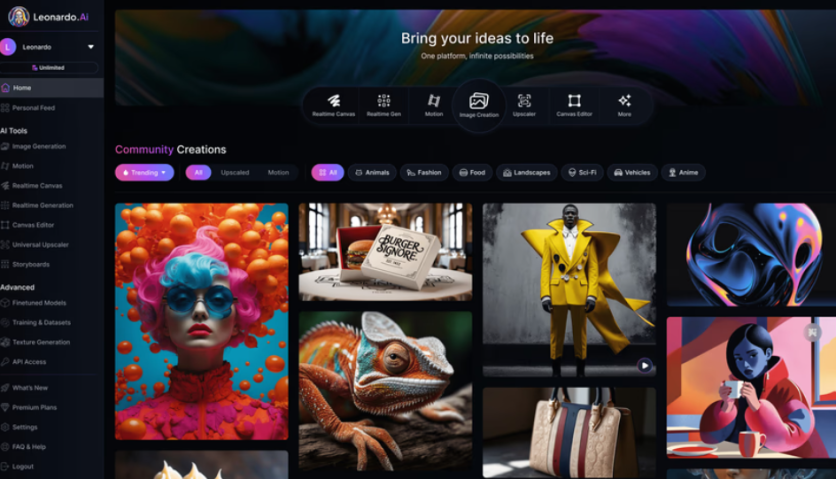Canva, the design platform used by millions worldwide, has announced a strategic acquisition of Leonardo.ai, an Australian startup specializing in generative AI content creation. This move signals Canva's commitment to becoming a leader in the rapidly evolving world of AI-powered design tools.
A Cash and Stock Deal Bolsters Canva's AI Arsenal

The financial details of the acquisition remain undisclosed, but Cameron Adams, Canva's co-founder and chief product officer, confirmed a mix of cash and stock payment. All 120 employees of Leonardo.ai will join Canva's growing team, including the executive leadership.
While Leonardo.ai will operate independently under Canva's umbrella, the acquisition signifies a significant boost in resources. With the backing of Canva's substantial resources, it's now quicker to conduct research regarding AI innovation.
"Existing tools and solutions offered by Leonardo.ai will remain available, and we aim to accelerate platform development and user growth through investments in API access for developers and foundational model R&D," Adams told TechCrunch.
Related Article : Canva Unleashes AI-Powered Tools to Challenge Adobe's Firefly
From Video Game Assets to Industry-Wide Solutions
Founded in 2022, Sydney-based Leonardo.ai originally aimed to revolutionize video game asset creation. However, their ambitions soon expanded. The team developed a comprehensive platform catering to diverse industries like fashion, advertising, and architecture.
Leonardo.ai offers a unique proposition: extensive user control over the generative process. Their "Live Canvas" feature allows users to create a quick sketch based on a text prompt. As the user modifies the sketch, Leonardo.ai's AI instantly generates a photorealistic image, seamlessly merging textual and visual input.
A key question surrounding any generative AI platform is training data. While details remain unclear, Leonardo.ai emphasizes the use of "licensed, synthetic and publicly available/open source data" to train their in-house models, including the flagship "Phoenix" model.
Transparency around training data is crucial due to potential legal complications associated with using copyrighted content without permission. Here, Canva's commitment to ethical AI development stands out. They have pledged $200 million to compensate creators who consent to having their content used for training their AI models.
A Powerful Synergy: Boosting Canva's Magic Studio
With over 19 million registered users and over a billion generated images, Leonardo.ai boasts an impressive track record. Their technology will be integrated into Canva's existing Magic Studio suite, significantly enhancing its capabilities.
Canva's journey in the AI realm began in December 2022 with the launch of Magic Write, a copywriting assistant. Aiming for an initial public offering (IPO), the company has aggressively pursued both internal development and strategic acquisitions to accelerate AI innovation.
In February 2021, they acquired Kaleido, a drag-and-drop background removal tool for images and videos. Adams acknowledges that Kaleido laid the foundation for much of Canva's current AI efforts.
Leonardo.ai marks Canva's eighth acquisition overall and the second within 2024. It follows the acquisition of U.K. design company Affinity for an estimated $380 million. Canva's impressive portfolio also includes presentation platform Zeetings, free stock photography platforms Pixabay and Pexels, and Czech-based product mockup app Smartmockups.
A Design Revolution Driven by AI
Founded in 2012, Canva has become a design powerhouse with over 180 million monthly active users worldwide. The company has raised over $560 million, most recently achieving a $26 billion valuation. Their revenue nears $2 billion annually.

ⓒ 2025 TECHTIMES.com All rights reserved. Do not reproduce without permission.




